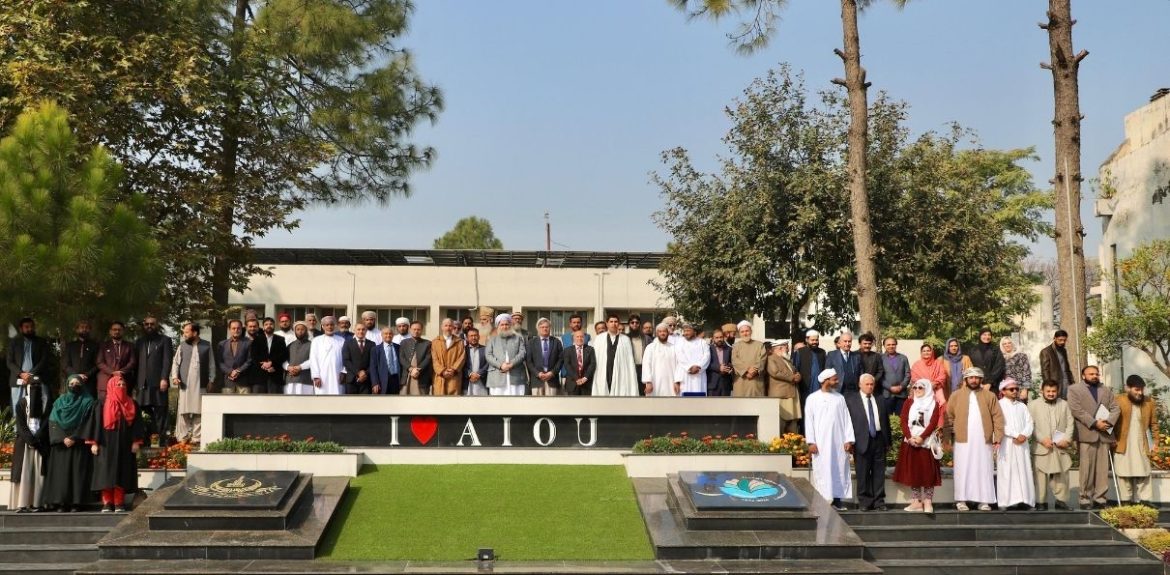ISLAMABAD ( WNAM REPORT ): Wherever Islam spread, whether Iran, Egypt, or the Indian subcontinent, it did not disturb the local culture; it only preached the message of Touheed and the Risaalat. Islam has never pursued a confrontational approach toward indigenous cultures; rather, it promoted them. These remarks were made by Senator Noor-ul-Haq Qadri, former Federal Minister for Religious Affairs, while addressing as the chief guest at the inauguration of “The 4th International Conference on Andalusian Literature: The Cultural and Artistic Interaction between Arabs and the West”, organised by the Department of Arabic at Allama Iqbal Open University.
He added that the conquest of Andalusia was not a mere military campaign; it was a cultural, civilizational, and intellectual revolution. The culture of Andalusia influenced both the Western world and the Islamic East. Senator Qadri noted that during nine centuries of Muslim rule, Christians enjoyed religious freedom, and Christian conferences were held in Europe and Córdoba.
Presiding over the conference, Vice Chancellor of Allama Iqbal Open University, Prof. Dr. Nasir Mahmood, said in his address that a study of Islamic history reveals that during those eight centuries, we inherited a grand legacy. Islamic civilization taught refined ways of living; we were the fountainhead of knowledge. If we wish, the entire treasure is still available to us; by adopting moral strength, we can benefit from it. He further said that the traces of history cannot be erased; in every street, alley, and building of Spain, one can still see reflections of the glorious era of Islam. The knowledge imparted by numerous scientists, researchers, philosophers, and scholars continues to guide us even today.
He added that no civilization ever progressed in a single field alone. Philosophy, mathematics, medicine, astronomy, geography, poetry, music, and literature together, these disciplines illuminated the world. Humanity has always advanced through the mutual sharing of civilizations.
In the opening session of the two-day international conference, Dr. Habib-ur-Rehman Asim, Prof. Dr. Foud Abdul Muttalib, and Prof. Dr. Syed Jasim Abbas Al-Zubaidi served as keynote speakers, while Prof. Dr. Shah Mohyuddin Hashmi, Dean Faculty of Arabic and Islamic Studies, and Sahibzada Syed Qamar-ul-Haq of Muhammadi Sharif University, Chiniot, also shared their reflections.
Chairman of the Department of Arabic, Dr. Abdul Majeed Baghdadi, while presenting the aims and objectives of the conference, shared that 150 research papers were received, of which 92 are being presented. Renowned scholars, researchers, and literary experts from various Arab countries, including Jordan, Algeria, Oman, Iraq, Morocco, and Egypt, are participating in the conference.
11


